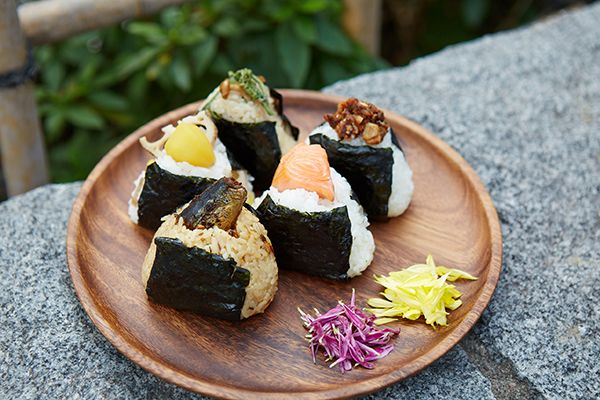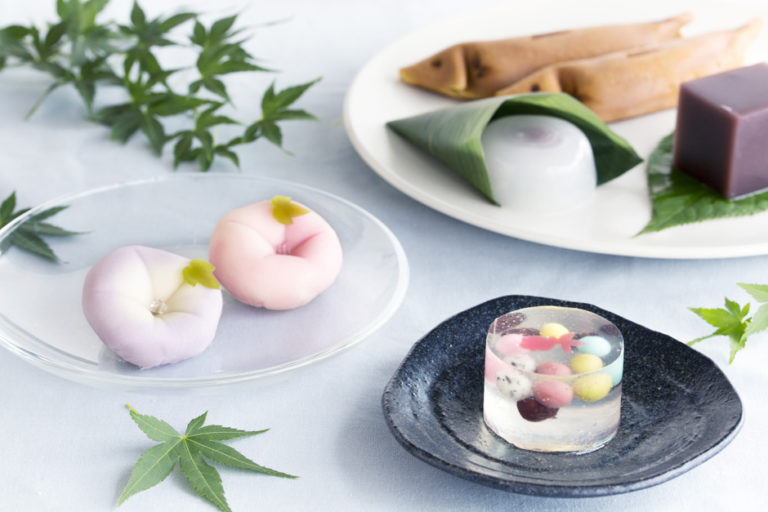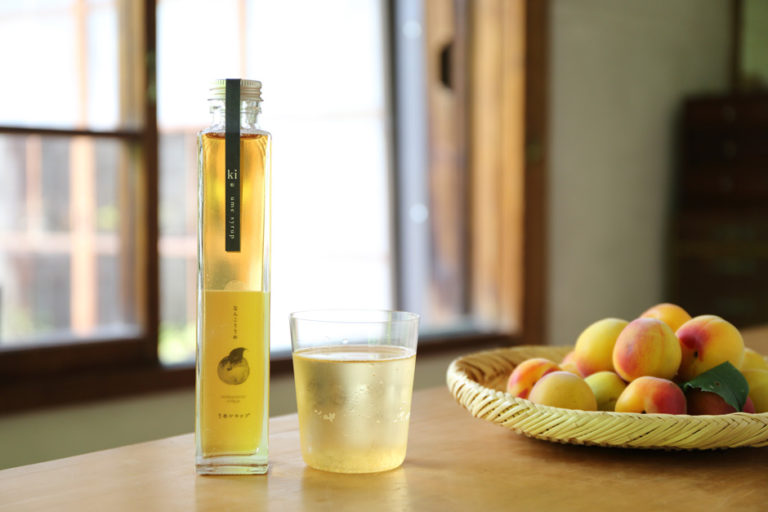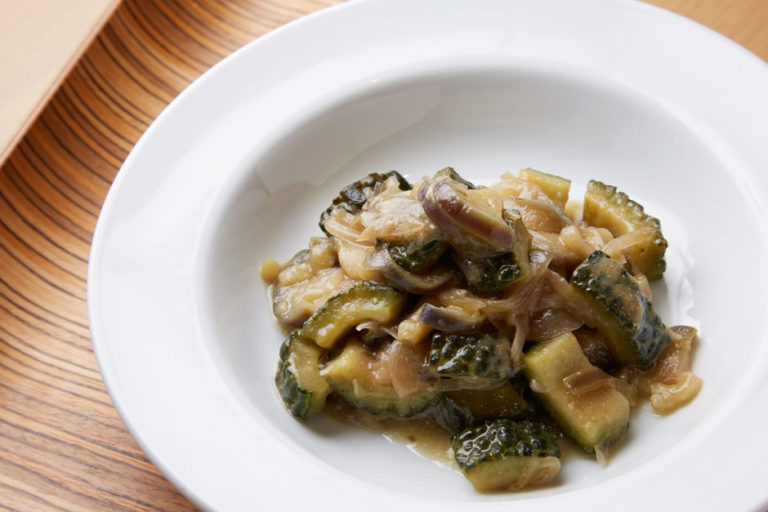Onigiri ideas for the autumn season
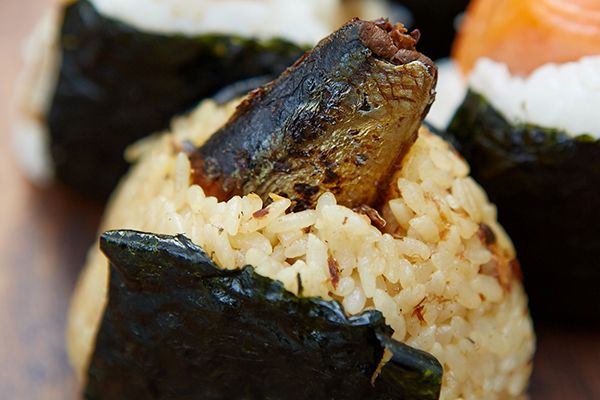
Takikomi gohan (Japanese mixed rice) made with grilled saury
Saury (called sanma in Japanese) is strongly associated with autumn in Japan, since the peak harvest for this type of fish is September and October.
Sauries set off on their autumn migration to Japan in the summer months, beginning their journey in the northern waters of the Sea of Okhotsk.
The annual Sanma Festival, held throughout Japan, celebrates the popular dish of saury cooked over a charcoal grill.
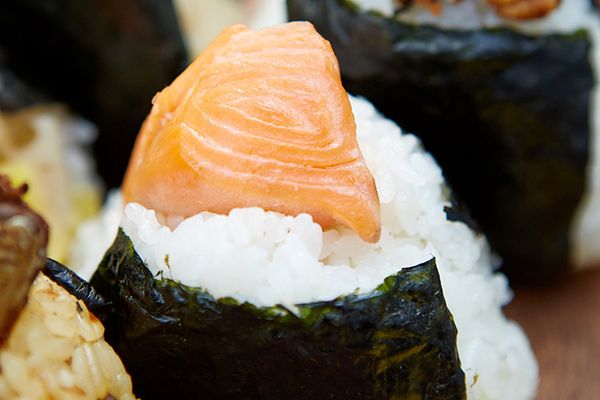
Fresh salmon
Autumn salmon, which return to their spawning grounds later than spring salmon, are also known as akiaji (“taste of autumn”) in Japan.
The peak harvest for autumn salmon is September and October.
Early-harvest salmon (caught between May and August) are given the special name tokishirazu, indicating that they have returned to the river too early.
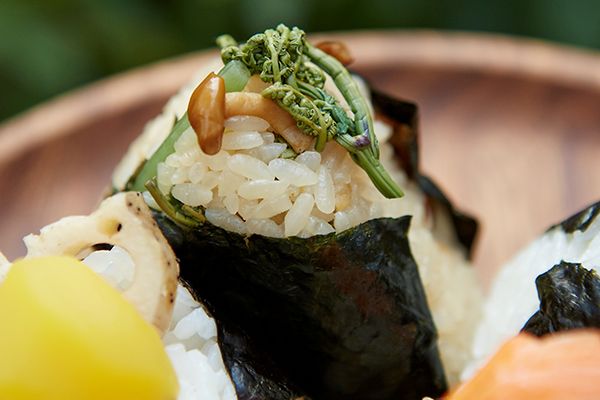
Takikomi gohan made with mushrooms and vegetables
Autumn is mushroom season in the mountains of Japan.
The fall in temperature that follows summer creates the ideal conditions for mushrooms to flourish.
Although Japan is home to countless other delicious mushrooms varieties, the undisputed king of them all is the matsutake mushroom.
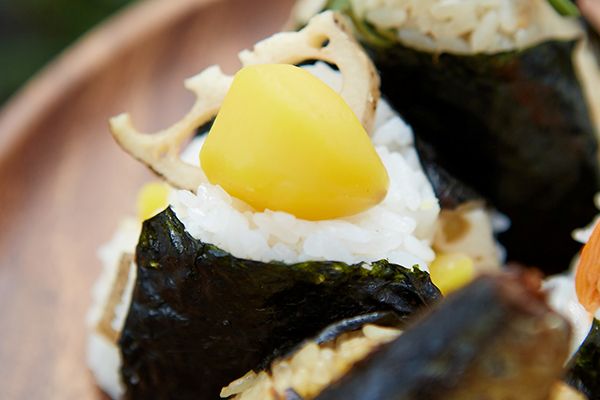
Takikomi gohan made with chestnuts and lotus root
Nothing says autumn in Japan quite like chestnuts.
Japanese chestnuts are big and bursting with flavor.
They tend not to be as sweet as other types of chestnuts, which makes them a great addition to rice.
When they are cooked together with rice, lotus root, harvested from September to October, is the perfect complement to chestnuts.
Wonderfully fresh, early-harvest lotus root adds a lovely texture to rice.
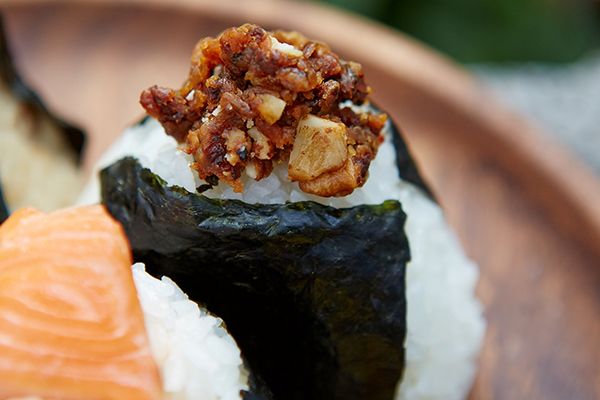
Walnuts with miso
The highly nutritious walnut has been a part of the Japanese diet since ancient times.
Walnuts thrive in the cooler climates of Nagano prefecture and the Tohoku region.
Their harvest season is September and October.
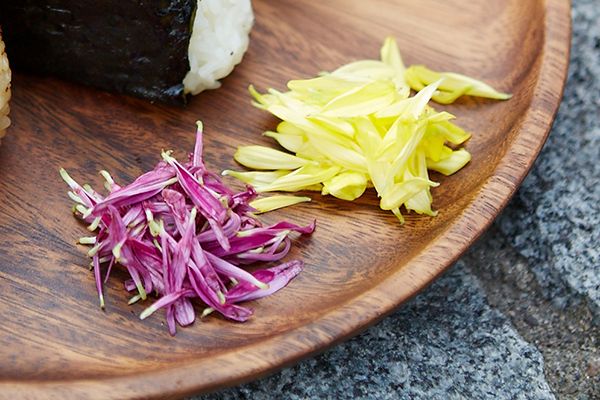
Pickled chrysanthemum
Chrysanthemum is another autumn food ingredient,
with its harvest peaking in October and November.
The tubular, rounded petals of the chrysanthemum are deliciously crisp and crunchy.
The first rice of the year
Shinmai (new-harvest rice) heralds the advent of the autumn season. Rice plays a central role in Japanese life and culture. Many people enjoy trying out shinmai from the various different rice-making regions of Japan, from Kyushu in the south all the way up to Hokkaido in the north. Freshly cooked shinmai has a unique aroma, stickiness, and freshness, making it perfect for onigiri. Here, we have used Hitomebore, a brand of shinmai that is harvested in October just before it reaches full maturity.

